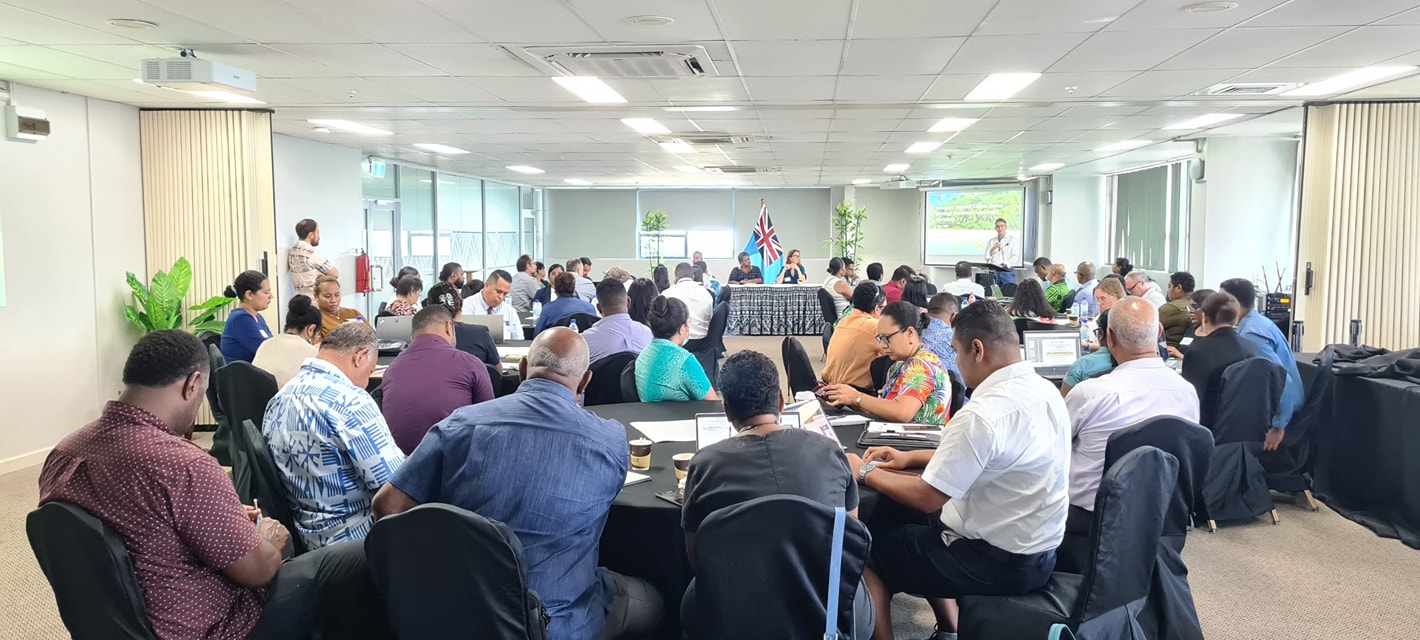
Inaugural Carbon Market Strategy Consultations
Carbon
markets offer a source of opportunity and a distinct lens through which to
evaluate and appreciate the crucial role our environment and its services play
for island nations like Fiji, who are confronting development challenges that
are aggravated daily by the impact of climate change.
Acting Permanent Secretary for the Ministry of Fisheries and Forestry,
Atelaite Rokosuka, made the remark today, when she formally
opened the inaugural National Carbon Market Strategy Roadmap Consultation
Workshop in Suva.
The one-day workshop was hosted by the Office of the Prime Minister’s
Climate Change Division (CCD) and financially supported by the Australian
Government with the assistance of the Carbon Market Institute (CMI) who would
assist with consultations and technical assessment required for the Government
to develop the Strategy Roadmap.
It is attended by stakeholders from civil society, private sector
organisations and Government agencies.
“This inaugural workshop marks the formal launch of the stakeholder
consultations that will help us to establish some common waypoints for
navigating this complex, yet important new set of tools, concepts and
mechanisms proposed to accelerate collaborative actions to reduce carbon
emissions globally,” Mrs Rokosuka said.
She said carbon markets offer us an opportunity to derive value from
activities that enhance nature through activities that enrich our environment,
reduce emissions at source, fund new technologies, and act as a means to
complement existing efforts to protect our environment and transition our
society to net zero emissions.
However, in light of the escalating climate crisis, Mrs Rokosuka said
humanity needed to put a much greater price on carbon and place much higher
value on all legitimate opportunities to not only sequester and store carbon
but also “wean ourselves off our addiction to carbon emissions-producing
activities.”
“Carbon markets offer an incentive for international actors, looking to
reduce their emissions profile, to do so in collaboration with us and in so
doing, help to create co-benefits which would not be realised or seen as
additional if the same activity was carried out in their own country,” Mrs
Rokosuka said.
“As great as it all sounds, we cannot simply rely on markets to solve
this crisis – these mechanisms can only be seen as complementary to broader
efforts to directly reduce emissions at source. Over reliance on markets alone
is arguably what has gotten us into the climate change mess in the first place
– especially because traditional market economics focuses on supply and demand
as the be all and end all. But we know, here in Fiji, that just because
something can have demand and can be supplied that it does not mean it is not
harmful.”
She thanked the Government of Australia for its financial support to
progress this strategic work, Mr John Connor and CMI for their partnership and
the CCD team for driving the initiative.